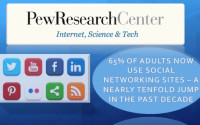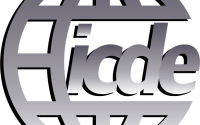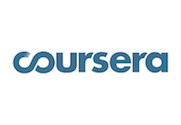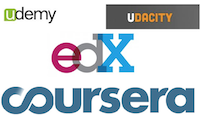Affordable Learning at Scale With OER
Open educational resources free students and faculty from the tyranny of the textbook. Here’s how to encourage large-scale adoption. Campus Technology
Premier Portal for Professionals Since 1995, Covering Technology-Based Education
Open educational resources free students and faculty from the tyranny of the textbook. Here’s how to encourage large-scale adoption. Campus Technology

Nearly two-thirds of American adults (65%) use social networking sites, up from 7% when Pew Research Center began systematically tracking social media usage in 2005. Pew Research reports have documented in great detail how the rise of social media has affected such things as work, politics and political deliberation, communications patterns around the globe, as […]

As the world conference of the International Council for Open and Distance Education approaches, ICDE President Tian Belawati – rector of Indonesia’s enormous open institution Universitas Terbuka – says that the twin messages of open, distance and flexible learning are “access and success”. University World News
Temoa is a distributor of knowledge that provides a multilingual public catalog of collections of Open Educational Resources (OER). Temoa seeks to support the educational community to find the resources and materials that meet their needs for teaching and learning, through a specialized search system and collaborative social tools. Temoa was established after the need […]
Although the open scholarship movement has successfully captured the attention and interest of higher education stakeholders, researchers currently lack an understanding of the degree to which open scholarship is enacted in institutions that lack institutional support for openness. I help fill this gap in the literature by presenting a descriptive case study that illustrates the […]
Open Educational Resources (OER) is terminology that refers to educational resources (content and software) distributed through the Internet, free of charge and freely accessible, expanding learning opportunities for adult learners. This terminology first appeared around 2002, although its roots can be traced to the open architecture of the Internet. Until recently, OER development has focused […]

Since Massive Open Online Courses (MOOCs) are accessible by anyone in the world at no cost, they have large enrollments that are conducive to educational research. This study examines students in the Coursera MOOC, Introductory Human Physiology. Of the 33,378 students who accessed the course, around 15,000 students responded to items on the pre-course survey […]

Massive open online courses (MOOCs) have generated considerable media interest, more than other education initiatives such as Open Education Resources (OERs). In this article the author argues that this can be seen as an example of the battle for narrative in open education. MOOCs attracted media interest because they appealed to broader narratives such as […]

Many modern web-based systems provide a ‘responsive’ design that allows material and services to be accessed on mobile and desktop devices, with the aim of providing ubiquitous access. Besides offering access to learning materials such as podcasts and videos across multiple locations, mobile, wearable and ubiquitous technologies have some additional affordances that may enable new forms […]

To address challenges that learners, course creators, librarians and academics involved with OER and MOOCs are facing when looking for scholarly materials, Athabasca University Library has initiated the development of the Open Library at AU. This open library is a full library website that provides easy access to open and free resources. Tools and information literacy […]